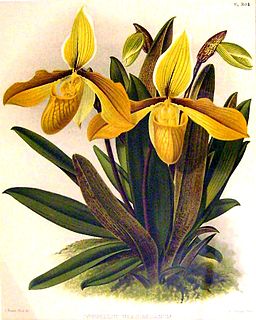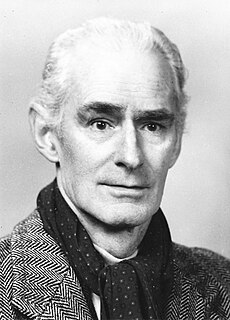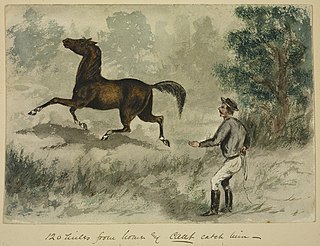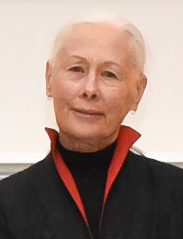 W
WRita Angus was a New Zealand painter. Along with Colin McCahon and Toss Woollaston, she is credited as one of the leading figures in twentieth century New Zealand art. She worked primarily in oil and water colour, and is well known for her portraits and landscapes.
 W
WEdith Marion Collier was an early modern painter from New Zealand. She came from Wanganui. Her work is largely unknown at home and overseas. Edith Collier's contribution to New Zealand art as an innovator, modernist and expatriate painter placed her in a most distinguished group, but her achievements have been eclipsed by the very company she kept - such as Frances Hodgkins and Margaret Preston.
 W
WFrederick Vincent Ellis was a New Zealand artist and art teacher. His works of notable stained glass windows include the war memorial windows in the Auckland War Memorial Museum, the World War I memorial window in the Hunter Building of Victoria University of Wellington, and windows in the First Presbyterian Church, Dunedin, and Timaru Boys' High School.
 W
WJohn Nugent Fitch was a British botanical illustrator and lithographer, best known for his contribution of 528 plates to The Orchid Album, a landmark work of eleven volumes published between 1872 and 1897. Fitch was the nephew of botanical artist Walter Hood Fitch (1817–1892). Fitch also contributed to Curtis's Botanical Magazine from 1878, joining a select group of illustrators such as William Kilburn, James Sowerby, Sydenham Edwards, William Jackson Hooker and Walter Hood Fitch. Fitch also produced plates for Lepidoptera Indica by Frederic Moore.
 W
WEmily Cumming Harris was one of New Zealand's first professional women painters. She chiefly painted New Zealand plants and flowers and worked mainly in water colour. She was born in Plymouth, Devon, England in about 1837 but spent most of her life in Nelson, New Zealand.
 W
WDesmond W. Helmore is a New Zealand artist and illustrator, known both for his fine art and for his scientific work depicting insects, not least illustrating the New Zealand Arthropod Collection. One of the country's most noted and prolific biological illustrators, over 1000 of his illustrations of insects were published in research papers from 1976 to 2006.
 W
WMabel Hill was a New Zealand artist known for landscapes, portraits, and floral still lifes. She taught at the Wellington School of Design.
 W
WFrances Mary Hodgkins was a New Zealand painter chiefly of landscape and still life, and for a short period was a designer of textiles. She was born and raised in New Zealand, but spent most of her working life in England. She is considered one of New Zealand's most prestigious and influential painters, although it is the work from her life in Europe, rather than her home country, on which her reputation rests.
 W
WGabrielle Hope was a painter from New Zealand known for her watercolours and drawings. Her work consists of still lives, landscapes, portraits, and works featuring animals. She preferred to sign her works simply as "GABRIELLE."
 W
WMary Young Hunter or Young-Hunter was a New Zealand painter.
 W
WDouglas Kerr MacDiarmid was a New Zealand expatriate painter, known for his diversity and exceptional use of colour, and involved with key movements in twentieth-century art. He lived in Paris, France.
 W
WColin John McCahon was a prominent New Zealand artist whose work over forty-five years consisted of various styles including landscape, figuration, abstraction and the overlay of painted text. Along with Toss Woollaston and Rita Angus, McCahon is credited with introducing modernism to New Zealand in the mid twentieth century. He is regarded as New Zealand's most important modern artist, particularly in his landscape work.
 W
WPeter McIntyre was a New Zealand painter and author.
 W
WRaymond Francis McIntyre was a New Zealand artist and art critic, best known for his superb painting and acute awareness of contemporary trends in European art of the early twentieth century.
 W
WFanny Osborne was a prominent New Zealand botanical illustrator. She was born in Auckland in 1852. A collection of her paintings of Great Barrier Island plants was published in 1983.
 W
WEvelyn Margaret Page was a New Zealand artist. Her career covered seven decades, and her main areas of interest were landscapes, portraits, still lifes and nudes.
John Shotton Parker, known professionally as J. S. Parker, was a New Zealand painter.
 W
WPhilip Robert Presants was a chromolithographer, designer and painter in New Zealand. He became Chief Artist of The Press in Christchurch, New Zealand. He was heavily involved in the New Zealand International Exhibition, as a member of the Decorative Committee and the Fine Arts Committee. He also designed the programme booklet and exhibited his own work. He died in 1942 in London.
 W
WWilliam Alexander Sutton was a New Zealand portrait- and landscape-artist. A graduate of the Canterbury College School of Art he returned there to teach for more than 30 years.
 W
WMary Elizabeth Tripe, generally known as Mollie Tripe, was a New Zealand artist and art teacher.
 W
WPetrus van der Velden, who is also known as Paulus van der Velden, was a Dutch artist who spent much of his later career in New Zealand.
 W
WRobert “Bob” Guy Walls was a painter born in Upper Hutt, New Zealand.
 W
WHarold Bullock Webster (1855–1942) was a self-taught painter who worked in Canada, the U.K., and New Zealand.
 W
WJohn Weeks was a New Zealand artist who was one of the most influential staff members at the Elam Art School of the University of Auckland, where he taught from 1930 to 1954.
 W
WDame Robin Adair White is a New Zealand painter and printmaker, recognised as a key figure in the regionalist movement of 20th century New Zealand art.
 W
WAdela Mary Younghusband, generally known as Adele Younghusband, was a New Zealand painter and photographer.